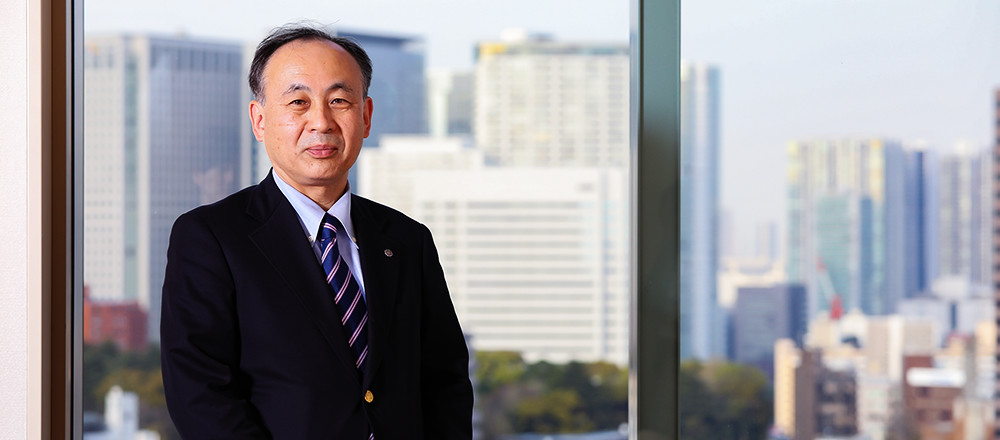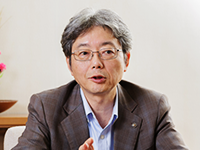Executive Interview
Hiroya Miyazaki
Senior Vice PresidentHead of Automotive Technology Development Center
The harsher the environment, the greater the need for high-added-value bearings.
We are currently seeing a trend in the automotive industry toward automatic transmissions with more gears. Until a few years ago, 6-speed automatic transmission was the norm. However, now we are seeing 8-speed transmissions on the market and even 10-speed models in high-end cars.
The introduction of more gears to automatic transmissions aims to improve fuel efficiency and create a better driving experience, and this technology is likely to be adopted in a wide range of vehicles in the future. NSK bearings will play a vital role in these new transmissions.
As more and more gears are introduced, not only will the number of bearings increase, but each bearing will require higher and higher specs. Cogs, oil pumps, and bearings make up more than 80% of mechanical loss in automatic transmissions. Transmission manufacturers strive to reduce loss to a minimum in order to increase fuel efficiency.
In order to do so, it is necessary not only to reduce the weight and inertia of the bearings themselves, but also to reduce friction, drag, and hydraulic pressure. In other words, since high-value-added bearings and materials that can withstand use under increasingly severe conditions are needed, NSK can leverage the strength of its Four Core Technologies to achieve a competitive advantage.
As transmissions and engines continue to evolve, the demand for bearings will only increase.
How will cars change in the near future? According to predictions through year 2026, although the total volume of automatic transmissions itself will not change, the trend toward a greater number of gears will continue. Transmissions with eight or more gears are expected to make up 50% of the market.
Although cars without engines such as electric vehicles and fuel cell vehicles have begun to appear on the market, cars with engines are expected to remain the standard for some time yet, especially in emerging countries. While the jury is still out on how climate change regulations may affect this ratio, we can be confident that the number of cars sold will continue to increase, and that the number of gears in automatic transmissions will also rise.
A planetary gear set is used in automatic transmissions, and this is an area of technology in which NSK is particularly strong. As automatic transmissions continue to add gears, we expect demand for these products to increase. And even if the number of electric and fuel cell cars continues to rise, there will be new demand for bearings due to the change from combustion engines to electric motors. In other words, demand for automotive bearings will continue to grow no matter which direction the technology heads.
We are looking for talent eager to drive the future of the automobile.
Typically, around 100 to 150 bearings are used in a single car. Bearings are vital for moving parts—not only in transmissions, but also in engines, brakes, steering, and motors. They are an essential component that keep the world in motion.
Bearings are components built upon years of technological development. The bearing industry is not one where products that meet customer requirements can be developed overnight. Recently, due to increasing environmental performance requirements, axles and housing are being made smaller and lighter, just as bearings are becoming more compact and lightweight. As components take on different forms and shapes to meet the demand of new applications, the bearings that support them will need to change as well.
While in the past it was enough to only consider the bearings themselves, in order to meet customer demands going forward we need to look beyond the product. We are looking for personnel who can see the bigger picture—such as how cars work, how transmissions are put together to transmit power, and how bearings are used in such systems. Bearings are essential for the future of automobile technology. We welcome new talent eager to test the limits in this rapidly evolving industry.

Note: Department names and job titles reflect those at the time of the interview.
